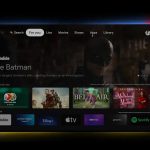The joint study by the University of Sydney and University of Western Australia revealed that 70 per cent of those polled backed mandated vaccines.More than three in five respondents in the study said they would take a COVID-19 vaccine voluntarily. One in four were unsure about getting a shot. Of that group, 70 per cent had safety concerns about the vaccines’ rapid development.Almost one in 10 said they would not get a COVID-19 vaccine.Those who voted for a major political party — such as the Liberal, National and Labor parties — were significantly more likely to say yes to a vaccine than voters for minor parties.“It’s a surprising finding,” one of the lead authors of the study, political scientist Associate Professor David Smith from the University of Sydney, said.“A lot of people who are hesitant would approve of the government making a vaccine a requirement to go to work or study. There would be wide political support for a mandate with some small pockets of opposition based on broader dissatisfaction with government.”“People seem to understand the risks associated with particular activities, and the potential usefulness of mandates to continue to keep spread rates of COVID in Australia low.”HUNT OUTLINES ROAD MAP TO REOPEN INTERNATIONAL BORDERSSafe travel corridors with low-risk countries and fewer restrictions for vaccinated Australians will be included in a road map to reopen international borders.Health Minister Greg Hunt outlined a three-step plan on how border restrictions would eventually be lifted.“It’s really built around the three principles of green lanes and opening up new bubbles with different safe countries, as we’ve done with New Zealand and as we’ll do with others in the Pacific and in the region as they become progressively safer,” Mr Hunt said on Sunday.“The second part of the road map is our own domestic vaccination strategy, protecting the nation.“The third element, that’s the capacity for greater travel for those who have been vaccinated.”Mr Hunt said that vaccinated Australians will be able to travel earlier and “it is highly likely” that they’ll be able to return with lesser restrictions.In light of this, Treasurer Josh Frydenberg said he wants migration levels to increase to the levels seen before the pandemic as soon as health experts declared it possible, pointing to the need for skilled workers.COVID PATIENTS SUFFER SYMPTOMS SIX MONTHS AFTER INFECTIONTwo in three Australians that had a serious case of COVID-19 suffer long-term health effects, a new study has shown.The COVID Recovery Study, being conducted across 30 Australian hospitals, involves interviews with about 200 patients about effects six to 12 months on.Seventy per cent of patients reported mild symptoms including shortness of breath and weakness and a small number said they had a persistent cough, headache, or loss of taste and smell.Patients who were already critically ill with a wide range of infections were more likely to report lingering issues, the ABC reports.VICTORIA BACKS INDEFINITE BORDER CLOSUREActing Victorian Premier James Merlino has backed Prime Minister Scott Morrison’s view that Australia’s international borders will stay closed indefinitely.Mr Morrison made the comments in News Corp Australia’s Sunday papers, but later hit back at the comments attributed to him, saying that Australia had not adopted an “elimination” strategy and does not have a goal of achieving “zero cases” of coronavirus.“I support the comments of the Prime Minister. The pandemic is going to be with us for quite some time,” Mr Merlino told a press conference in Melbourne on Sunday.“That is the reality. We all want to get back to normality as quickly as possible, but we won’t get there until we have not only a successful rollout in the Commonwealth’s vaccine program here in Australia, but 3 billion-plus vaccinations right around the world.“While there’s some countries that are doing well in terms of rolling out the vaccine and we’re seeing a lowering in transmission, other parts of the world are on fire right now, so the Prime Minister is absolutely correct to say that this will be with us for some time, and the border controls, which is a commonwealth responsibility, have to reflect that.”NO NEW LOCAL CASES BUT NSW RESTRICTIONS EXTENDED NSW has again recorded no new cases of locally acquired COVID-19, although restrictions imposed on the Greater Sydney area on Thursday have been extended for a week.The State Government has lifted one of the restrictions – the requirement for retail customers to wear masks – however public-facing staff in retail outlets must continue to do so.While there were no new local cases in the 24 hours to 8pm Saturday, there were six new overseas-acquired cases detected in quarantine.There were 18,024 tests reported to 8pm Saturday, compared with the previous day’s total of 22,153, NSW Health reported.Investigations are continuing into the source of two locally acquired cases, announced on Thursday, that prompted the latest round of restrictions.The two cases are household contacts of each other; a man and woman, both in their 50s from the eastern suburbs.NSW Health has not yet identified how the man, who was the initial case, was exposed to the virus.The NSW Government has extended the temporary COVID-safe measures until 12.01am on Monday May 17, for the Greater Sydney region, that includes Wollongong, the Central Coast and the Blue Mountains.The following measures will now be in effect until 12.01am Monday 17 May.•Visitors to households are limited to 20 guests, including children;•Masks are compulsory on public transport and in public indoor venues, such as theatres, hospitals, and aged care facilities.•Masks are not required in gyms or other similar facilities like indoor pools or dance studios;•Drinking while standing up at indoor venues is not allowed;•Singing by audiences at indoor shows or by congregants at indoor places of worship is not allowed;•Dancing is not allowed at indoor hospitality venues or nightclubs however, dancing is allowed at weddings with a strong recommendation that no more than 20 people should be on the dancefloor at any one time; and•Visitors to aged care facilities are limited to two people per day.•In relation to hospitality venues and retail outlets, masks must be worn by customer-facing staff. Patrons and customers do not have to wear a mask unless they are in the gaming area of a hospitality venue.A full list of venues of concern connected with the two locally acquired cases is available on the NSW Government website.NSW Health said it was treating 111 COVID-19 cases, one of whom is in intensive care and being ventilated. Most cases (97 per cent) are being treated in non-acute, out-of-hospital care, including returned travellers in special health accommodation.Covid venues nswRETURNED TRAVELLER FROM INDIA ADMITTED TO ICUA returned traveller from India who tested positive to COVID-19 and was isolating in a Perth quarantine hotel, has been transferred to hospital after his condition deteriorated.The man, who is aged in his 30s, is in the Fiona Stanley Hospital’s intensive care unit. His condition is listed as stable.Western Australia’s Department of Health reported no new cases of COVID-19 on Sunday. The state’s total remains at 1013.WA Health is monitoring 22 active cases of COVID-19. To date, the WA Department of Health has administered 112,605 COVID-19 vaccinations, including 26,333 people who have received both doses. On Saturday, 2310 people were vaccinated.NZ BUBBLE TO RESUME WITH NSW AS VACCINATED ARRIVALS GET COVIDThe travel bubble between New Zealand and NSW has resumed as the state recorded no new cases.Anyone who has visited an exposure venue identified by NSW Health cannot travel to New Zealand within 14 days of their visit.It comes after direct flights between Sydney and NZ were paused on Thursday after the two positive cases this week.New Zealand health officials said there was “no evidence of widespread undetected community transmission” in NSW. It comes as six overseas arrivals who tested positive for COVID-19 in Sydney had all been fully vaccinated overseas, NSW Health has revealed.“In the four weeks ending 1 May 2021, six (3%) overseas acquired COVID-19 cases self-reported being fully vaccinated prior to arrival in Australia, although they may have been exposed to COVID-19 prior to their vaccination becoming fully effective (two weeks after their second dose),” NSW Health reports.One case received a one-shot vaccine (Johnson & Johnson) and the remaining cases had received both doses of a two-shot vaccine (Pfizer, AstraZeneca or Moderna).NSW breathed a sigh of relief after no local COVID cases were recorded on Friday. But, there were five new cases of coronavirus in hotel quarantine.Premier Gladys Berejiklian said she was pleased with Sydney’s response, as testing numbers rose to 13,339.However, there are still fears community members could be infected with COVID-19 without knowing it after an eastern suburbs couple tested positive on Wednesday and Thursday respectively.After the couple’s diagnosis, NSW Health compiled a long list of places where officials fear COVID-19 could have spread. However, New South Wales recorded zero new locally acquired cases of COVID-19 on Saturday, scuppering fears of a Mother’s Day lockdown.MAJOR SUPERMARKET ALERT ISSUEDOn Saturday a major supermarket was added to the list.Health authorities have pleaded with shoppers who visited a Woolworths store in Sydney’s east during a COVID-19 exposure period to get tested and “isolate immediately” until a negative result is returned.The major supermarket in Double Bay was added to the venues list as a site where people were potentially exposed to the virus.Those at the store between 10.45am and 11am on Monday, May 3, are being considered as casual contacts to a known infection, NSW Health said on Saturday morning.“NSW Health has identified a new venue of concern as part of ongoing investigations into the two locally acquired cases of COVID-19 reported earlier this week,” the department wrote on Twitter.“Anyone who attended the following venue at the time listed below is considered a casual contact and should get tested immediately and isolate until a negative result is received. Continue to monitor for symptoms, and if they appear, get tested again.”Haymarket restaurant XOPP was added to the list on Thursday night.NSW Health wrote in a coronavirus update on Friday that QR code check-ins at the restaurant were “very low”.“NSW Health is concerned that compliance with QR code check-ins at XOPP restaurant was very low and urges anyone who dined or worked there on Wednesday, 28 April from 1.30pm to 2.30pm to get tested immediately and self-isolate until they receive a negative result,” the department wrote.The XOPP restaurant was highlighted in the NSW Health update as forming part of an investigation into how the eastern suburbs couple was infected. A department spokesman said officials were keen for people who visited the eatery at the time specified to come forward and get tested immediately and self-isolate until receiving a negative result. But he stressed there would be no negative consequences for anyone who missed checking in. The man who first tested positive to COVID-19 this week has no links to overseas travel, border work or health work, and health officials are stumped as to how he became infected. While a genome analysis has indicated the virus he was infected with originally came from a returned traveller from the US, it’s unclear how the spread actually occurred. Officials have warned there appears to be a “missing link”, meaning one or more people might be in the community and COVID-19 positive without being aware of it. “It’s a mystery at the moment,” NSW Premier Gladys Berejiklian told Channel 7’s Sunrise program earlier on Friday. “We don’t know who it is. It could be more than one person, it could be a worker that has passed it onto someone else who has passed it onto someone else.”CLICK HERE for the full list of NSW COVID-19 case locations and alerts. – with Jessica McSweeney, Anton Nilsson, and James Hall
Powered by WPeMatico




